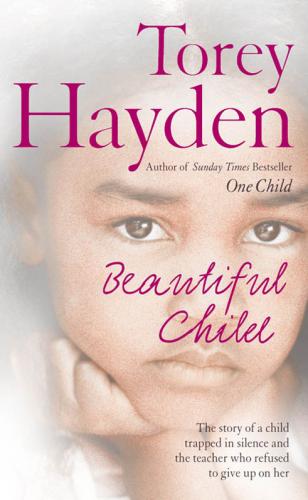Torey Hayden
Beautiful Child
Contents
This book is based on the author’s experiences. In order to protect privacy, names and some identifying characteristics, dialogue and details have been changed or reconstructed. Some characters are not based on any one person but are composite characters.
The first time I saw her, she was atop a stone wall that ran along the west side of the playground. Lolling back with one leg outstretched, one drawn up, her dark hair tumbling opulently down behind her, she had her eyes closed, her face turned to the sun. The pose gave her the aura of some long-forgotten Hollywood glamour queen and that’s what caught my attention, because she could, in fact, have only been six or seven.
I went on past her and up the walk to the school. Seeing me coming, the principal, Bob Christianson, came out from the school office. “Hey, darned good!” he cried heartily and clapped me on the shoulder. “Great to see you. Just great. I’ve been so looking forward to this. We’re going to have good fun this year, hey? Great times!”
In the face of such enthusiasm I could only laugh. Bob and I had a long history together. When I was just a struggling beginner, Bob had given me one of my first jobs. In those days he was director of a program researching learning disabilities, and his noisy, casual, hippy-inspired approach to dealing with the deprived, difficult children in his care had alarmed many in our rather conservative community at the time. Admittedly, it had alarmed me a little in the beginning too, because I was newly out of teacher training and not too accustomed to thinking for myself. Bob had provided me with just the right amount of encouragement and direction while bullishly refusing to believe anything I claimed to have learned from my university course work. As a consequence, I spent a heady, rather wild couple of years learning to defend myself and finding my own style in the classroom along the way.
At the time it was an almost ideal working environment for me, and Bob almost single-handedly molded me into the kind of teacher I would become, but in the end he was too successful. I learned not only to question the precepts and practicalities of the theories I was taught in the university, but I also began to question Bob’s. There was too much insubstantial pop psychology in his approach to satisfy me; so when I felt I’d grown as much as I could in that setting, I moved on.
A
